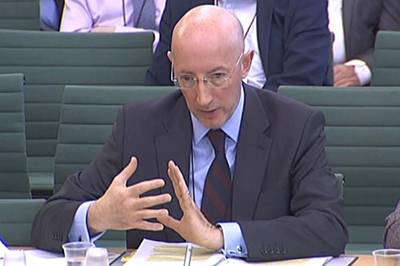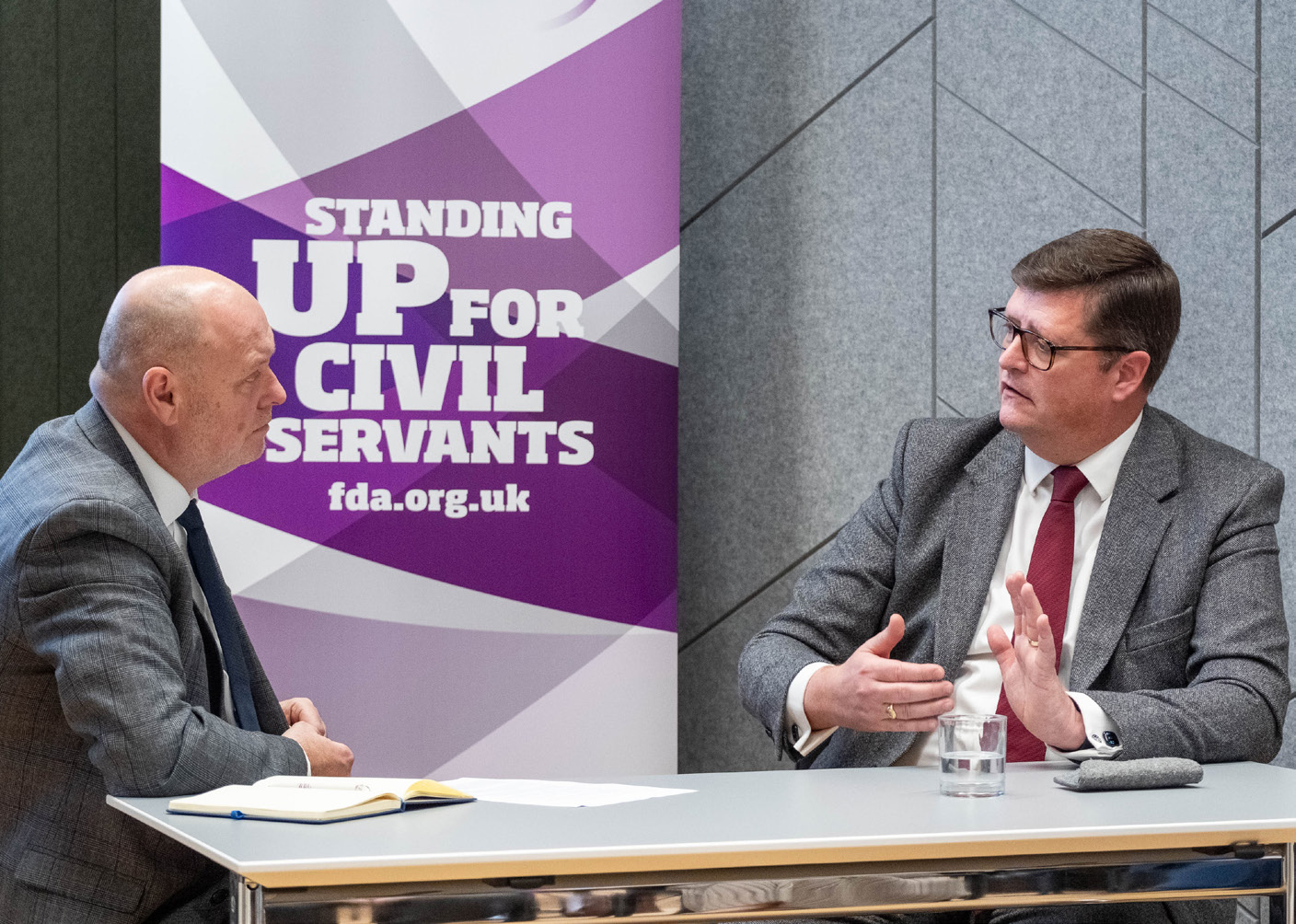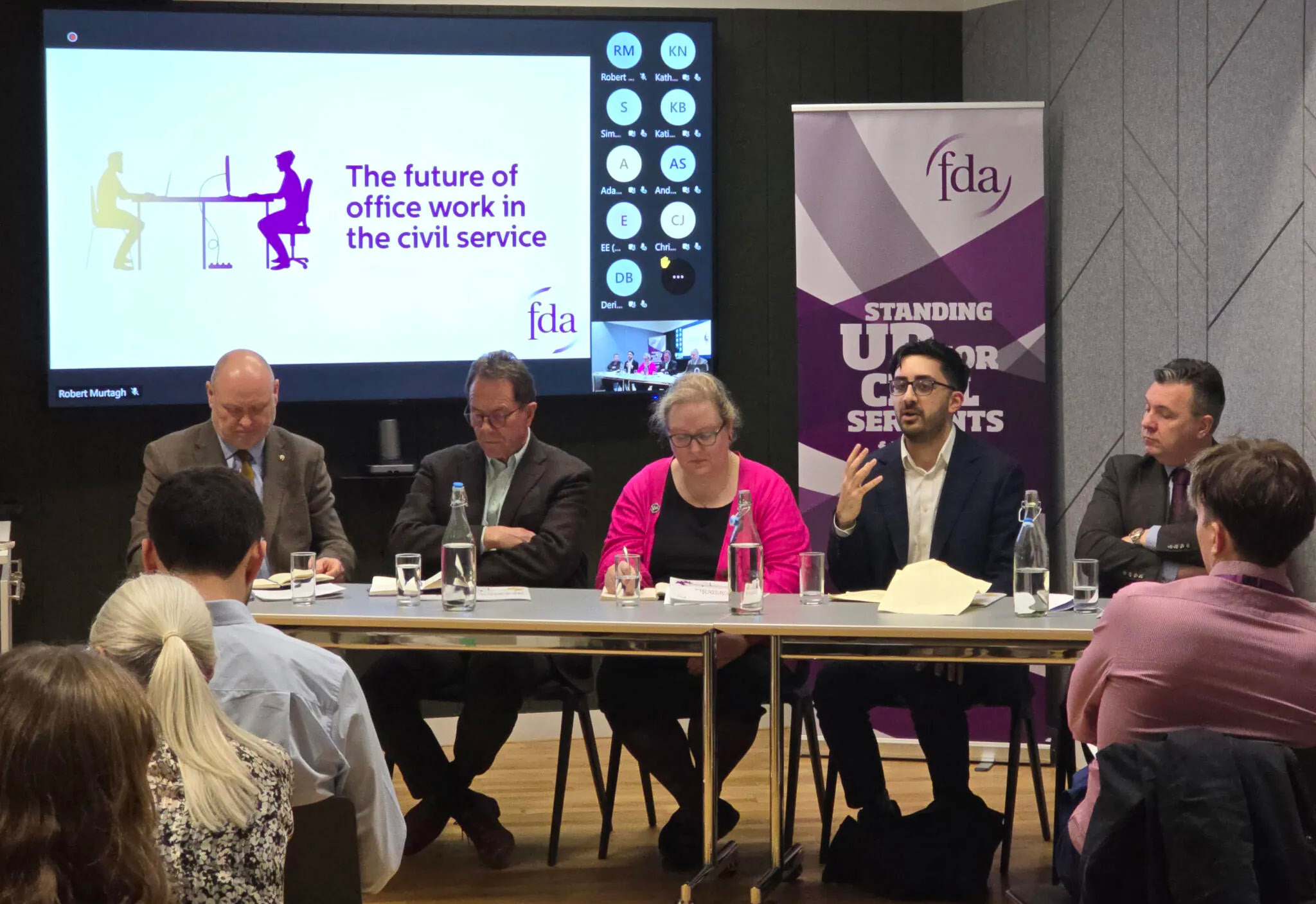Jim Harra: “I’m in awe, frankly, of what my colleagues and our suppliers have achieved”

When Jim Harra first joined the civil service 36 years ago, in what was then the Inland Revenue, he couldn’t have imagined he would be leading the department through the global health and economic crisis brought about by COVID-19.
Harra’s department has played a key role in the government’s response to the pandemic, designing and implementing the Coronavirus Job Retention Scheme, all while transitioning from an office-based to a home-based organisation practically overnight.
“Our first job, like any organisation, was to make sure our people were safe,” he explains. “And also, to do our bit to help prevent the spread of the virus by getting people home and working effectively from home.”
That transition was a big task in an organisation of more than 60,000 people. Harra believes that investment in new technology in recent years enabled them to do it quickly, with the vast majority of HMRC staff working effectively from home “within a week”. This also played a key role in maintaining a safe environment for around 5,000 HMRC staff who carried on working in the office throughout the lockdown.
“We’ve engaged closely with trade unions like the FDA and PCS on how we do that. I’m very proud that our people have carried on being effective and delivering but also that we’ve worked together to make sure that everybody is safe while we do that. That was priority number one.”
It also quickly became clear to Harra that his department was going to be “central to the delivery of government support to the economy on a vast scale”, which was his next priority. Policy and rules for those schemes and the systems to support them were largely devised on the kitchen tables and in the home offices of HMRC staff, and have now supported more than nine million workers across the UK. Harra expresses huge gratitude to the work of his staff, adding that he “runs out of superlatives sometimes” to describe just how well the department responded to the challenges posed by COVID-19.
“I’m very proud that our people have carried on being effective and delivering but also that we’ve worked together to make sure that everybody is safe while we do that. That was priority number one.”
Of course, he is acutely aware that there are still many more challenges to come. Some of those support schemes will be coming to an end and will “need to be closed down effectively” when the time comes, followed by “post-scheme compliance work”. With the situation being so uncertain, he also reassures that HMRC staff “stand ready to do anything that’s required as the pandemic progresses”, which encompasses a lot more than these “one-off” support schemes, as Harra describes them.
“We had to change the way we administered the tax system as well to take account of the capacity of our customers to comply with their obligations,” he explains. “The biggest area for that probably was what we did with tax debt – we’ve worked really hard to support businesses and citizens who can’t pay their tax bill, to defer payment where we need to, to put them into timed pay arrangements, and to make sure they can carry on viably through the downturn.”
Harra adds that he has “no doubt” that HMRC will have to continue to be “flexible” in its approach to tax administration due to “fragility of the economy” and that the department will be careful to not “do damage to a viable business” who might have vulnerabilities due to the pandemic. HMRC’s Chief is right at home diving into the detail of tax administration, having joined the civil service straight out of university in Belfast in 1984 as a graduate tax entrant and staying in the department ever since. He reflects that this is “quite unusual” among senior civil servants, and especially permanent secretaries, but think it’s in part because the department is “so vast” that it’s allowed him to get “lots of different professional experiences within the one department”.
Many things have changed in the decades since – not least the name of the department after the merger of Customs and Excise and the Inland Revenue – but one of the key projects driving change before the pandemic was the government hubs programme, of which HMRC was playing a leading part. The ambitious estates strategy aims to shrink the number of government buildings from 800 to 200, consolidating the workforce into large shared ‘hubs’, which will eventually house multiple departments. A key plank of the strategy is a more flexible approach to work, utilising technology which means civil servants can be more agile and do not need to sit at the same desk day in, day out to work effectively.
“I think we will increasingly see offices as places where people collaborate, where they innovate together, where they go to learn together and to induct and mentor new joiners… And perhaps less so as a place where you have to attend every day to sit and stare at a screen or talk into a headset.”
It is the investment in this technology that had already taken place which Harra credits as helping to smooth the transition to home working in the face of COVID-19, and the pandemic will likely accelerate this change in working patterns already underway in HMRC.
“We’ve got a strategy that we want to move away from a large network of small offices, which were created to serve the way we worked in the past, to a network of big regional centres and specialist sites, where we can collaborate more effectively together and where we can give better career development to people.”
Harra’s view at the moment is that HMRC will “remain an office-based organisation” on the other side of COVID-19. However, he also believes that lockdown has shown that people “can work much more flexibly than we perhaps anticipated”, which will cause the department to “rethink what offices are for”.
“I think we will increasingly see offices as places where people collaborate, where they innovate together, where they go to learn together and to induct and mentor new joiners, for example,” he adds. “And perhaps less so as a place where you have to attend every day to sit and stare at a screen or talk into a headset that could do more flexibly at home, if you wanted to… but I don’t envisage that we are going to become a virtual organisation that doesn’t have any offices.”
“What’s really important is that ongoing relationship where trade unions can just make sure, on behalf of their members, that management is always paying proper regard to the impacts of what we’re doing on people.”
Another key change that Harra intends to progress under his leadership is the department’s ‘Respect at Work’ equality agenda: “It’s quite a bold move for the department to very transparently have the Respect at Work review and also more recently to carry out the race disparity audit and publish the results of that. Hopefully that demonstrates to people my commitment to doing something.”
The HMRC chief stresses that it was “necessary” to take these steps because “things are not right in the organisation”. While the department has made progress – and Harra thinks “you can see some hopeful improvement” – he doesn’t shy way from the fact that there is “a load more work to do”.
“There is a key focus on race and on disability, which myself and colleagues had already decided was a priority before the BLM movement brought race right up to the top of the agenda and has spurred us to do even more,” he explains. “That’s a big focus at the moment. In the last three months about 85% of senior managers have taken part in a series of listening events, to enable us to start to educate ourselves on the experiences of our BAME colleagues.”
Harra understands that it can be “painful” to share these experiences and is “full of admiration for the willingness of colleagues to help the organisation”, as the status quo is “just not acceptable”.
“We’ve got to make genuine and real improvements which reduce the disparities that you see in the audits but also just reduce the negative experiences that people have, which have a pervasive negative impact.”
He also paid tribute to the “challenging and constructive role” that unions play in helping the department to stay focussed on making these positive changes. As a long-time union member, Harra is unequivocal in his support for the value of unions in the workplace to make sure that “management stays focussed on the needs and the wellbeing of the people who work in the organisation”.
“What I’ve always strove for is constructive working relationships with trade unions,” Harra explains. “I think what’s really important is that ongoing relationship where trade unions can just make sure, on behalf of their members, that management is always paying proper regard to the impacts of what we’re doing on people.”
Harra on HMRC pay: “Straining at the seams”

“Many people just feel they deserve a pay rise full stop, after years of pay restraint, and I hope that is one outcome of the negotiations,” he says candidly. “But I think beyond that, we do need to address colleagues’ unhappiness with the current pay structure and how that works.”
Part of reforming that structure, Harra expects, will involve rectifying the wide range of different contractual arrangements between staff, many of whom will be working on the same team together.
“It’s a really tough challenge… but this is a real opportunity for HMRC and the people who work in it, which most other departments don’t have, to really modernise our pay and our contracts and come out of it making a positive difference that will really stand us in good stead for the future.”
Harra on Brexit and the “big changes” coming
Before the department’s abrupt shift to deal with the immediate effects of COVID-19, the key focus was preparations for the UK’s future outside of the EU.
Immediately following the referendum in 2016, Harra moved to create an EU transition unit to manage the outcome – “I think we were probably about the first department in government to set that up,” he recalls.
With negotiations now getting ready for the end of the transition period, Harra understands that there are going to be “big changes for our customers, particularly in customs, VAT and excise”.
“Priority number one is to change our systems so that they work effectively,” he explains. “That’s quite complex because they all integrate with each other and they also have to integrate with the systems used by ports, customs agents, traders and, of course, other government departments as well. Then, the next big challenge is really supporting our businesses in particular to get ready for what they need to do so that they can carry on running a successful business, facing changed obligations and changed opportunities.”
Harra is confident that this work “is all on track” but given the need to integrate with lots of other systems, he warns that it “will only be a good as the weakest link in that chain” and so will rely on HMRC ensuring that traders “are aware of what the end of the EU transition means” for them.
Related News
-

Under significant pressure: Interview with Director of Public Prosecutions
Tom Nathan speaks to Crown Prosecution Service Director of Public Prosecutions Stephen Parkinson about CPS’s handling of riots, the importance of impartiality and his plan to help reduce unmanageable prosecutor caseloads.
-

Changing the culture
HM Chief Inspector Sir Martyn Oliver sat down for an ‘in conversation’ event with FDA General Secretary Dave Penman, discussing the pace of change in Ofsted, challenging perceptions and tackling the long hours culture in Education.
-

Hybrid working: Led by evidence, not headlines
Tom Nathan shares the findings and recommendations of the FDA’s recent report on ‘The future of office working in the civil service’.